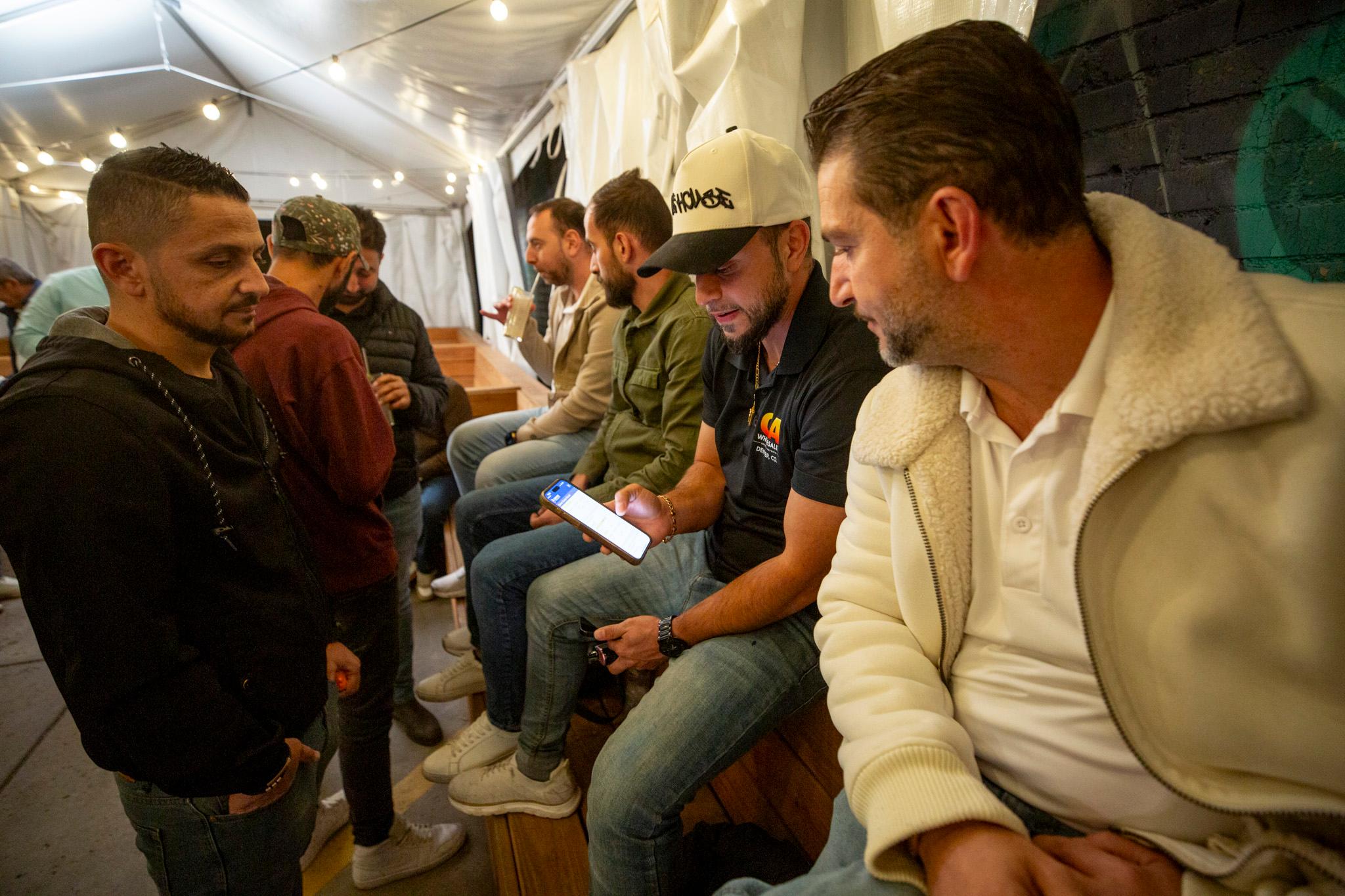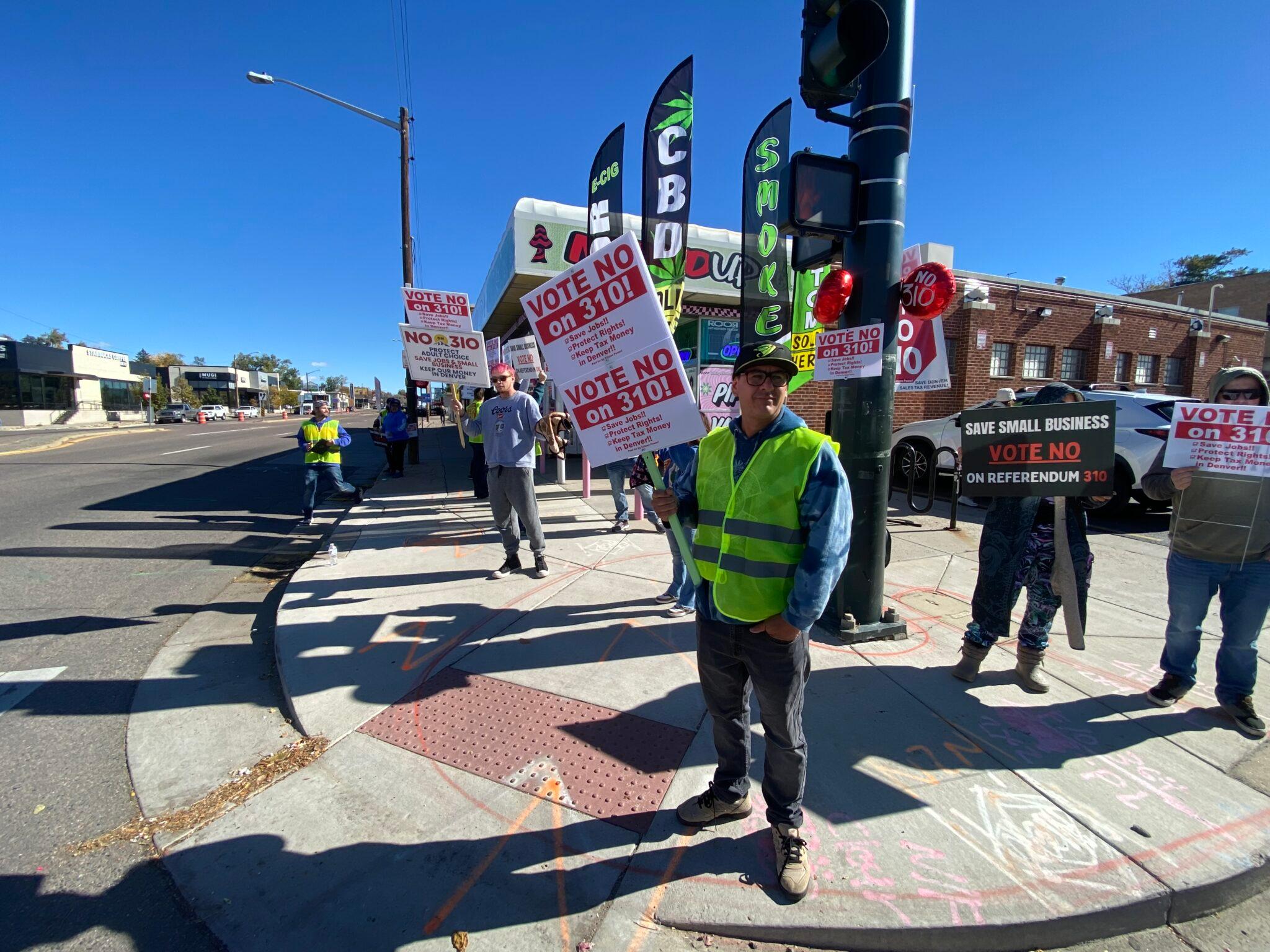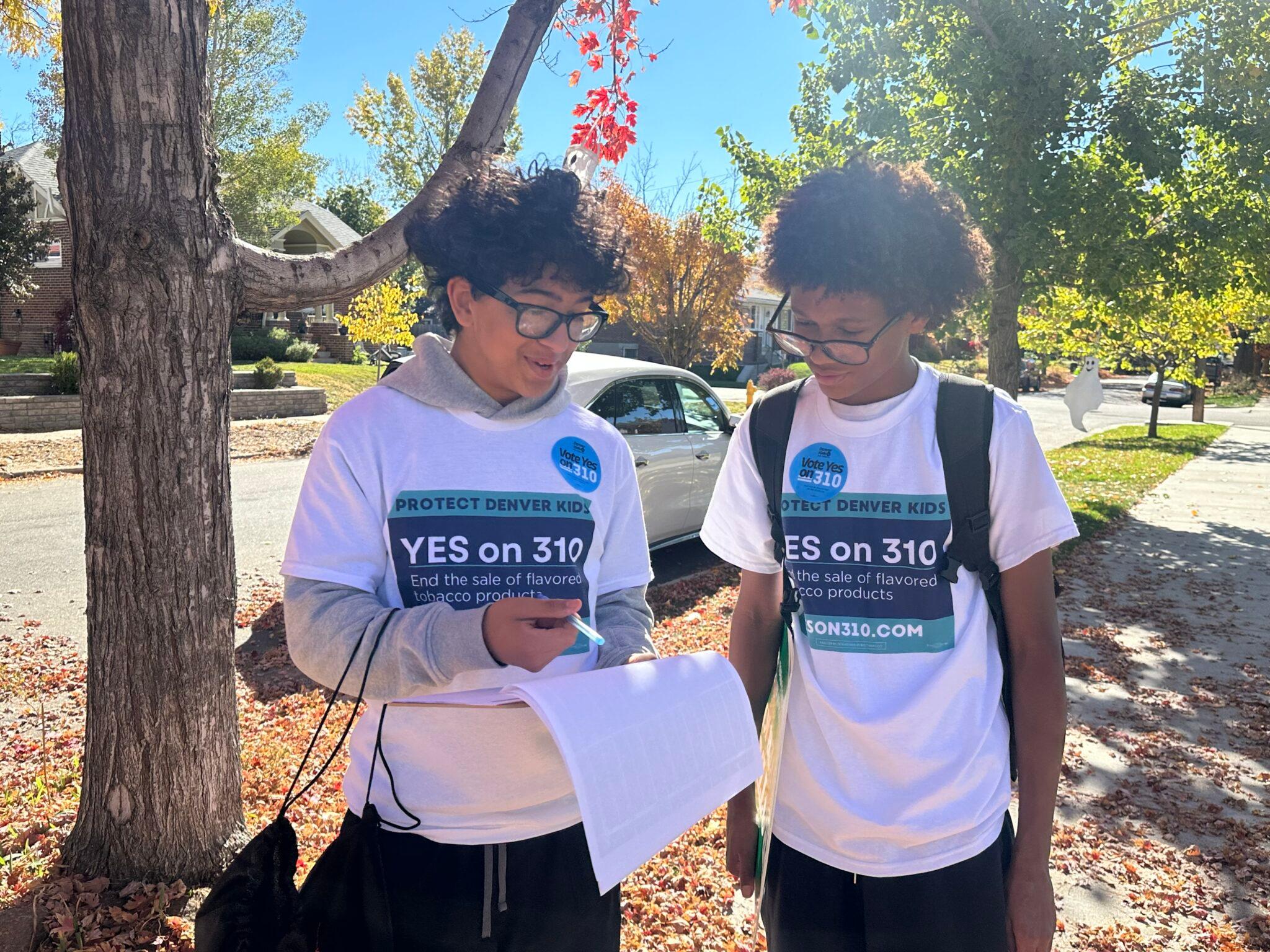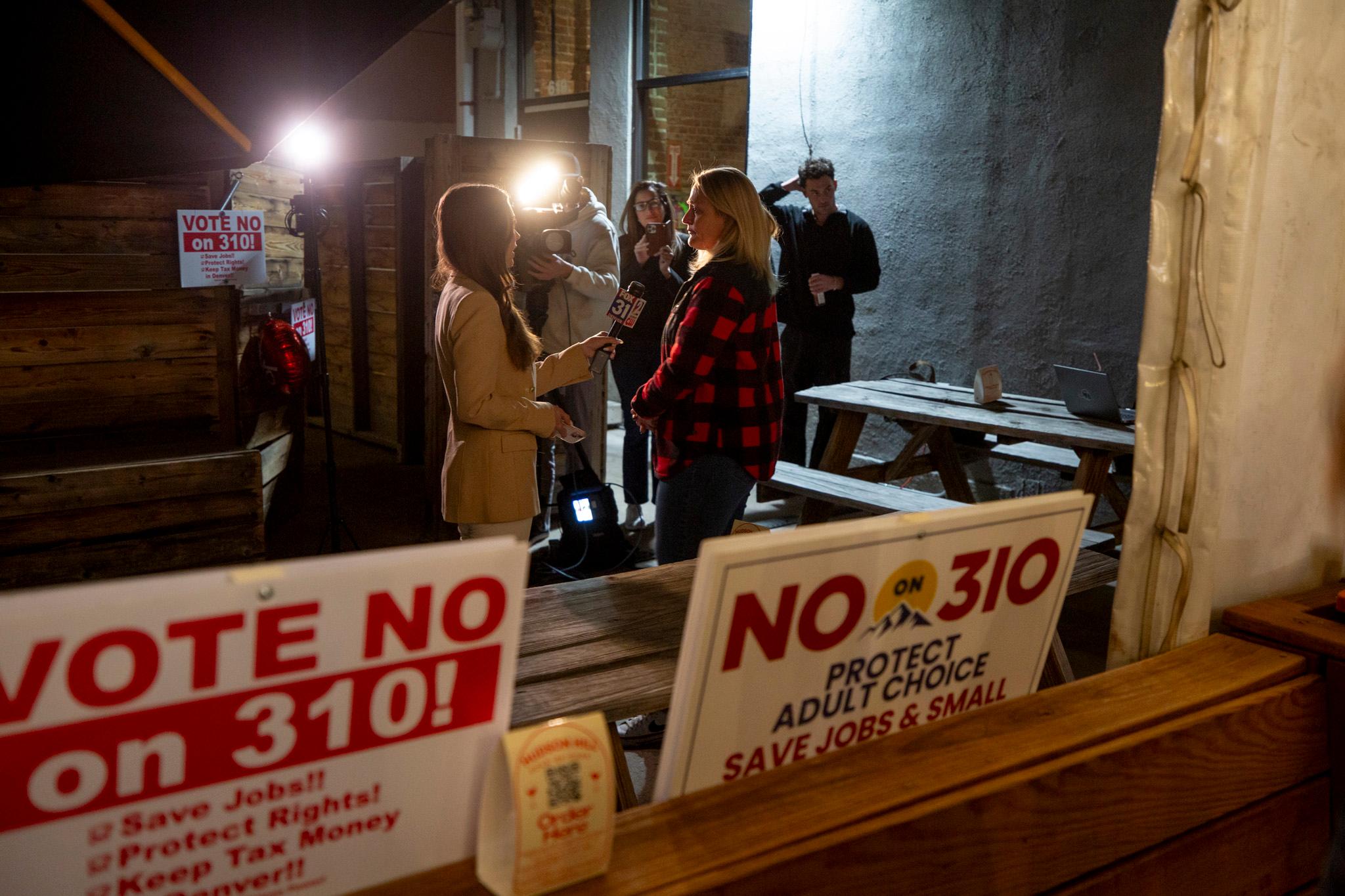Updated at 10:09 p.m. on Tuesday, Nov. 4, 2025
Denver’s ban on flavored nicotine products is set to take effect with strong support from voters in Tuesday night’s elections.
As of 10 p.m., about 72 percent of voters were supporting the ban, with just more than 113,000 ballots counted. Local stores will likely stop selling fruity flavored vaporizers and menthol cigarettes as the city begins to enforce the law in the coming weeks or months.
“I'm excited. I'm encouraged,” said Selena Dunham, one of the outreach coordinators with the Yes on 310 campaign, which held a campaign event at Spangalang Brewery in Denver’s Five Points neighborhood. “I'm encouraged that people paid attention and that they think that the health of our children, our youth, is important.”
The Denver City Council passed the “flavor ban” last year, but opponents filed the ballot initiative to challenge it. A majority “yes” vote on Referendum 310 means it will stay on the books. A “no” vote would have repealed it.
The election was closely watched across the state and beyond, with Michael Bloomberg donating a record sum to support the flavor ban. It was the first time Colorado voters have weighed in on a flavored nicotine ban.
For some advocates, it was a deeply personal fight. Dunham counted a dozen family members who died from smoking-related illness, including an 85-year-old aunt whose funeral is Wednesday. Dunham she said had been a heavy smoker and had the lung condition COPD.
“I think we have a lot of work to do. There's some people that are just still totally blind to how serious this matter is,” Dunham said, noting decades of industry marketing in communities of color. “So we are making small steps, but I think we have a long way to go.”
It appeared to be the most expensive local campaign of the year.
Billionaire and former New York City mayor Michael Bloomberg has given about $5 million to the “yes” campaign, called Denver Kids vs. Big Tobacco, making up the vast majority of its budget.
It’s the largest sum ever given by an individual in a municipal race, according to the Office of the Clerk and Recorder in Denver. That money helped fund TV ads, which ran in heavy circulation the last few weeks, and other campaign efforts. The “yes” campaign argued that fruity nicotine flavors are luring kids into a lifelong addiction.
The opposition was organized and funded in large part by local vape store owners, who warned that they could lose their livelihoods and that customers would simply shop in neighboring cities or online. They framed it as a question of free choice, saying adults should be able to buy what they want — while maintaining safeguards to ensure kids don’t get access.

Opponents said the Bloomberg money, coming in the closing weeks of the campaign, was impossible to overcome.
“The voters have spoken, and I don't feel that they had all of the information that they needed just because we were just outspent in the last month, said Phil Guerin, president of the Rocky Mountain Smoke Free Alliance and owner of Myxed Up Creations, a vape shop on Colfax Ave.
Guerin cried at an election party at Hudson Hill, a bar and cafe in Capitol Hill. He said the other side’s ads — showing health care providers warning of tobacco’s health risks — painted Big Tobacco companies and small vape shops with the same brush.
“I’m not Big Tobacco,” Guerin said, at a watch event at the Hudson Hill bar and cafe in the Capitol Hill neighborhood.
“I think, absolutely, it's ridiculous when a New York billionaire can come and put (millions) into a referendum in Denver. What kind of sense does that make? There's gotta be a limit on that because at the end of the day, basically, Mike makes right, and that is not American.”

The opponents, organized under the name Citizen Power!, raised $652,000, a fraction of the other side’s funding. The top contributor was the Rocky Mountain Smoke Free Alliance, giving $173,000.
Multinational companies Altria (Altria Client Services LLC) and PMI (Philip Morris International) gave $75,000 in the early months of the showdown, but did not pony up any additional money in the final days of the fight, despite Bloomberg’s heavy giving.
It’s the latest battle in a decades-long fight over tobacco, vaping and public health.
This chapter of the fight began last December, when the city council voted 11-1 to approve the ban and Mayor Mike Johnston signed it. A few months later, opponents gathered nearly 11,000 valid signatures to put the question on the ballot.
Denver is the 14th city in Colorado to pass restrictions on the sale of tobacco products. That list includes Aspen, Boulder, Breckenridge, Carbondale, Dillon, Eagle, Edgewater, Frisco, Glenwood Springs, Golden, Keystone, Silverthorne and Snowmass Village.

Nationwide, nearly 400 municipalities and six states restrict the sale of flavored tobacco products, according to the nonprofit Campaign for Tobacco Free Kids.
Both sides said the results would be closely followed.
“I think it's being watched very much from in state, out of state, most certainly, and I think it does have implications to inspire and to have an impact in other areas outside of Colorado,” said Jodi Radke, regional director for the Campaign for Tobacco Free Kids.
In previous off-year elections, about 170,000 ballots have been counted — meaning more than half of this year’s result is likely in.












